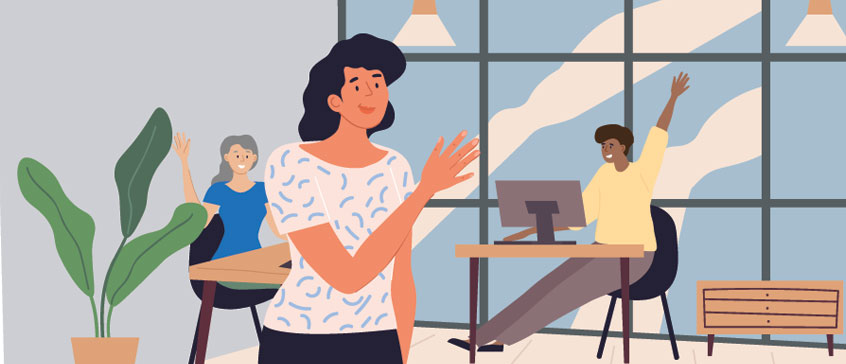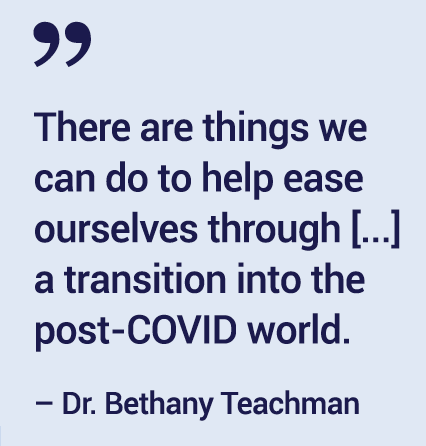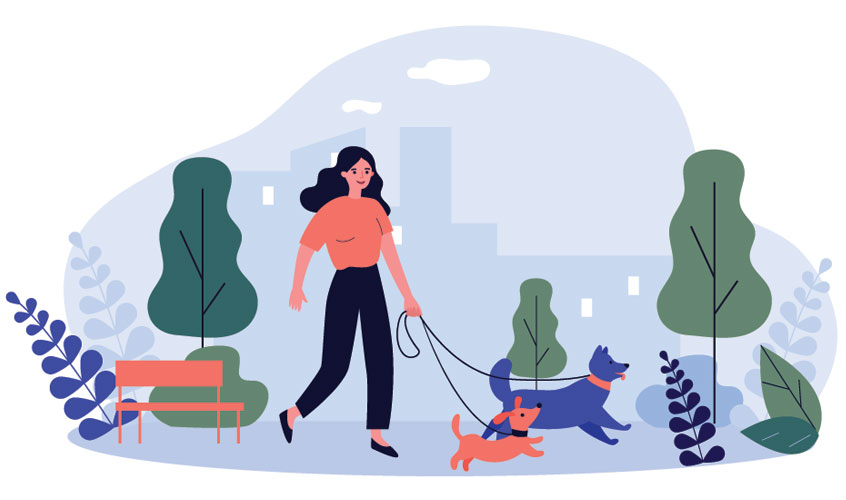Home / Continuing Studies News / Is "normal" on the horizon?
Is "normal" on the horizon?

By Therese Eley, Marketing Services
With infection rates decreasing weekly and vaccination rates on the rise, it seems a post-pandemic world is on the horizon. While for many this is a welcome prospect, mental health experts are reminding us that it is also to be expected that we may feel anxiety and apprehension about a return to "normal."
The prolonged stresses, uncertainties and in some cases, trauma, brought on by the pandemic have resulted in an overall increase in mental health issues such as anxiety, depression and post-traumatic stress disorders (PTSD). In fact, according to the Centre for Addictions and Mental Health, half of all Canadians have reported worsening mental health since the pandemic began. For many of us, that has looked like:
- Fear and concern for our own health and wellbeing, and those of our loved ones
- Changes in sleeping or eating patterns
- Difficulty sleeping or concentrating
- Worsening of chronic health problems
- Increased substance use
- Feelings of helplessness, boredom, loneliness and depression due to isolation
- Distress due to increased exposure to disturbing images and stories in the media

These symptoms aren't likely to just disappear overnight as the world returns to "normal." However, according to Dr. Bethany Teachman, a professor of psychology at the University of Virginia, there are things we can do to help ease ourselves through the anxieties of a transition into the post-COVID world.
1 Set realistic expectations
As restrictions lift and we are again permitted to enjoy the freedoms and liberties of life before the pandemic, it might feel strange to actually do so. And that's okay.
There is still uncertainty and unpredictability as we transition out of the pandemic, and it's natural to feel uncomfortable with letting go of established habits, such as mask-wearing and social distancing.
As well, social interactions may feel uncomfortable after so many months in isolation, and you may feel out of practice socializing in person again.
The important thing is to assess for yourself what you are comfortable with and trust that the anxieties will dissipate over time, with repeated practice.
2 Live your values
With so much time in isolation, many people have become more aware of what they value most. Generally, the things we have missed the most in isolation are a clue to what we value most. So, as we prepare to resume activities outside of our homes, take a moment to evaluate what your interests and values are, and prioritize activities that are in line with them.
3 Keep track
Be prepared that things may have changed for you since before the pandemic. Activities and people that were a regular part of your pre-pandemic life might have shifted or no longer hold the same value for you anymore. As you resume your daily life, pay attention to any correlation between your activities and associations, and your moods. Prioritize those that bring a sense of reward, accomplishment or happiness, and get comfortable letting go of those that don't.
4 Recognize your privilege and pay it forward
One thing that has become increasingly apparent during the pandemic is the role that privilege has played in how successfully people have been able to navigate the challenges of pandemic life. If you find yourself healthy, vaccinated, and secure in your housing and finances, you are among the privileged. For the world to really recover, we will need to look outwards to our communities and find ways to contribute and support those of us who have been more adversely affected by the stresses and traumas of the pandemic. Dr. Teachman's final word of advice is "don't idealize post-pandemic life or you are bound to be disappointed. Instead, be grateful and intentional about what you choose to do with this gift of a reboot. With a little thought, you can do better than 'normal'."

- Posted December 14, 2021
Visit Registration
2nd Floor | Continuing Studies Building University of Victoria Campus 3800 Finnerty Road | Victoria BC | CanadaTel 250-472-4747 | Email uvcsreg@uvic.ca
2026 © Continuing Studies at UVic
Legal Notices |
Sitemap

